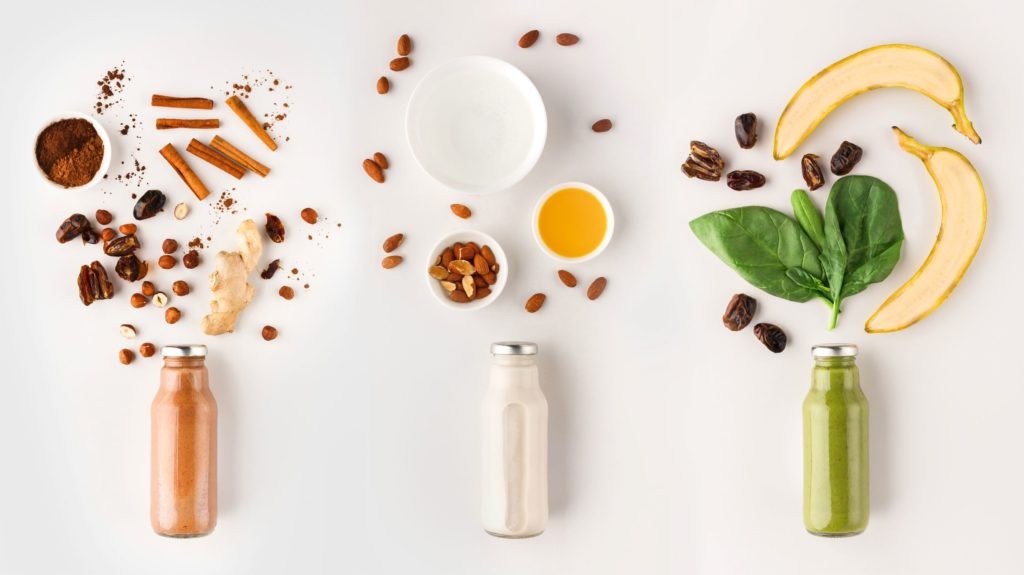
What are functional foods and nutraceuticals?
Functional foods are foods that are beneficial beyond the nutrients and energy they provide us. Many fruits, vegetables, legumes and fortified foods are often also considered functional foods because they can add additional health benefits (beyond meeting our energy and nutrient requirements).
The Academy of Nutrition and Dietetics defines functional foods as “Foods defined as whole foods along with fortified, enriched, or enhanced foods that have a potentially beneficial effect on health when consumed as part of a varied diet on a regular basis at effective levels.”
Nutraceuticals include functional foods AND encompasses supplements that contain bioactive compounds (substances that have an effect on living organisms). It is important to remember that supplements are a concentrated form of a bioactive compound that is consumed outside of a food matrix. This poses the risk that the supplement is less effective and can cause harm.
What is an example of a functional food?
What is considered a functional food? Any foods that provide health benefits beyond just their nutrient is considered a functional food.
Some examples of functional foods are:[1]
- Plant sterol- fortified margarines – Plant sterol and stanol esters reduce total cholesterol and low-density lipoprotein (LDL) cholesterol
- Yogurt with probiotics added – It has beneficial effects on gut health
- Fatty fish and omega-3 enriched eggs – It contains omega 3 fatty acids that has been shown to reduce triglycerides and lower
- Garlic – It contains organosulfur compounds that lower total cholesterol and LDL cholesterol.
- Cranberry juice – It contains Proanthocyanidins that is effective in reducing the frequency of urinary tract infections.
- Leafy green vegetable including kale, spinach and collard greens – They contain Lutein (zeaxanthin) that lowers the risk of age-related macular degeneration.
What are the functional food categories?
- Foods naturally containing bioactive food compounds that have positive effects on health, beyond basic nutrition e.g. leafy green vegetables, nuts, omega 3-rich fish
- Fortified and enriched foods e.g. plant sterol margarine, omega 3 fortified eggs
- Food ingredients manufactured to have prebiotic effects e.g. inulin [2]
- Supplements with bioactive compounds are considered a nutraceutical but not a “functional food.”


What are the disadvantages of functional foods?
Functional foods become a problem when individuals are heavily reliant on a product or its health benefit is exaggerated, causing individuals to neglect the pursuit of a well-rounded, healthy diet.
For example, omega 3 fatty acid enriched margarine can help with cardiovascular disease but cannot replace fish. Fortified margarine remains an energy-dense, high fat food that should be eaten in moderation. This can be misleading for consumers who perceive plant sterol margarine as a “healthy food” and become complacent about other dietary considerations necessary for a healthy heart.
Similarly, yogurt with probiotics can support gut health and immunity, however, the main focus should be on a variety of minimally processed and fibre-rich foods for a healthy gut.
It is important to remember that functional foods can help enhance a healthy diet, but cannot replace one.

How to include more functional foods in your weekly meal prep?
- Make your own trail mix with unsalted nuts and seeds. It’s the easiest snack to meal prep! Tree nuts (walnuts, almonds, cashews and pine nuts) have been shown to reduce total cholesterol by up to 12% and LDL cholesterol by up to 15%.[3] [4]
- Do you boil your eggs in advance? Upgrade regular eggs for Omega 3 fortified eggs or Vit D enriched eggs. Omega 3 fatty acids are important in reducing the risk of heart disease, rheumatoid arthritis and protects your brain from cognitive decline. Vitamin D assists with calcium absorption and is important for bone and joint health.
If you’re someone who doesn’t eat enough fatty fish (salmon, trout, sardines) or wants to prioritise their heart health, I would suggest going for the omega-3 fatty acids enriched eggs. If you don’t get enough sunlight (at least 15 minutes on hands and face per day), then Vitamin D fortified eggs are for you! - Add Kale and spinach to your next stir-fry, soup or smoothies. These leafy greens require minimal preparation so if you’ve got a busy week ahead, add them to your grocery list and weekly meal prep. You might have been told that carrots help you see in the dark, but did anyone ever tell you that leafy green vegetables keep your eyes healthy and functioning well for longer?

- Are you getting enough calcium in your diet? 73% of Australian women and 51% of Australian men do not meet their calcium requirements.[5] While dairy is a rich source of calcium, many individuals are not having the recommended 3-4 serves or avoiding it altogether. Adding in calcium-enriched orange juice or calcium-fortified plant-based milks and yoghurts can help individuals reach their requirements and protect their bones.
- Winter is coming and warm breakfasts are needed. Oats are the perfect tasty and budget-friendly solution. They also contain beta-glucan which has health benefits for blood pressure, cholesterol levels, gut health and weight management.[6]
- Probiotics have been trending in the health and fitness world for the last few years. There’s a good reason for this as there is many studies supporting its positive impact on gut health. You can reap these benefits by choosing kefir or yogurt with probiotics added.
If you’d like to have a diet tailored for you by a dietitian, click to access my dietetic services here.


